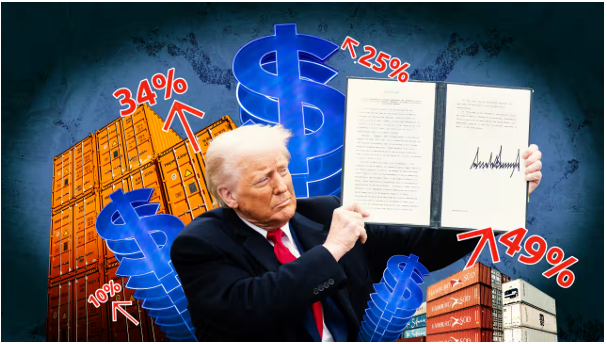NewsRoom
Welcome to your go-to source for all things related to the Australia Vietnam Business Association (AVBA) and our vibrant community. Our News and Updates page is dedicated to bringing you the latest insights, achievements, and highlights from within our network and the broader Australia Vietnam business landscape.
Major Development AVBA is fast-forward Phase 2
Update News: 19/06/2025
Major Development #AVBA is fast-forward Phase 2 transition and Leadership and Structure change and improvement.
Tin tức cập nhật: Phát triển chính #AVBA đang đẩy nhanh quá trình chuyển đổi Giai đoạn 2 và thay đổi cũng như cải thiện về Lãnh đạo và Cấu trúc.
# https://avba.com.au/about-us/leadership-and-structure/
# https://avba.com.au/resources/business-opportunities-board/
# https://avba.com.au/resources/business-directory/
# https://avba.com.au/resources/perks-and-discounts-board/
# https://avba.com.au/resources/job-board/
# https://avba.com.au/resources/businesses-for-sale/
# https://avba.com.au/resources/franchise-for-sale/
# https://avba.com.au/community/
Vietnam Investment & Trade Manufacturers Discovery Tour (VITMDT) Aug 2025
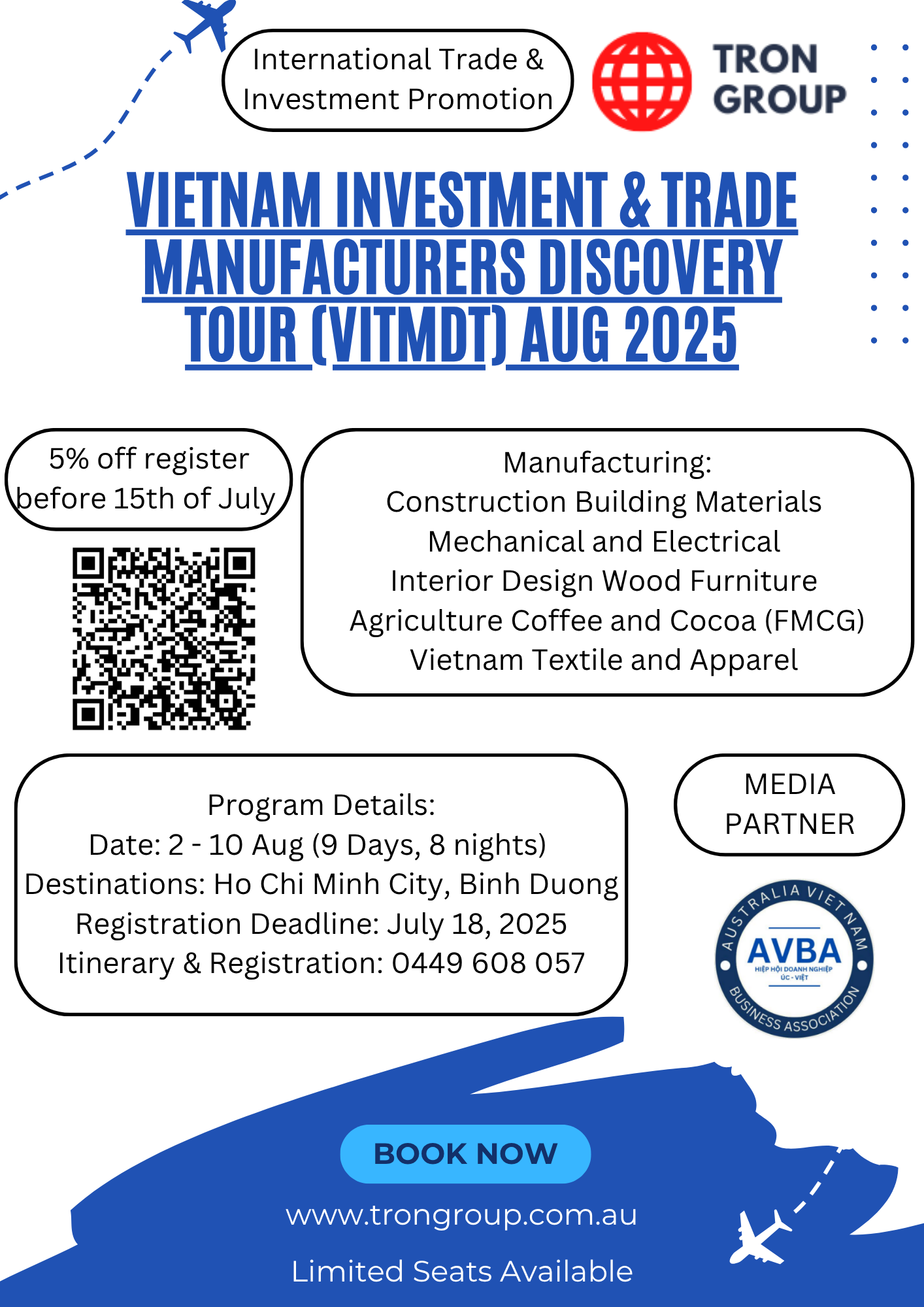
Vietnam Investment & Trade Manufacturers Discovery Tour (VITMDT)
Are you an Australian enterprises looking to do business in Vietnam?
Why should you join?
1. FIND Suppliers
2. CONNECT with Outsourcing Partners
3. IDENTIFY join venture partners to setup factories or business in Vietnam
4. EXPAND collaboration and market opportunities between the two countries
Program Details:
Date: 2 - 10 Aug (9 Days, 8 nights)
Destinations: Ho Chi Minh City, Binh Duong
Registration Deadline: July 18, 2025
Itinerary & Registration: >>>Ticket (Click Here)
Itinerary for the “Welcome to Vietnam – Vietnam Investment & Trade Discovery Tour (VITD)”
Agenda
1. Meet Vietnamese manufacturing enterprises
2. Meet Business associations in HCM city, Binh Duong
3. B2B Business Matching and Networking
4. Experience the 3 to 4-star hotel in HCM City and River Cruise Boat
Sectors in focus:
Manufacturers
Construction Building Materials
Mechanical and Electrical
Interior Design Wood Furniture
Agriculture Coffee and Cocoa (FMCG)
Vietnam Textile and Apparel
If you are interested to book the tour, please contact us as the information below:
Email: contact@avba.com.au or Call 0449 608 057
Thank you and have a great day!
Australian Vietnamese Business Association (AVBA)
International Trade & Investment Promotion
Mekong Delta Investment & Trade Discovery Tour (MIDT) June 2025

AVBA is media partner for AusCham Vietnam (MIDT), Auscham in collaboration with the Australian Government, industry partners, and media partners, invites you to join our "Mekong Delta Investment and Trade Discovery Tour (MIDT)." This unique opportunity is designed specifically for potential Foreign Direct Investors (FDI) from Australia, providing an in-depth look at the thriving economic landscape of the Mekong Delta region.
Three separate streams for three high-potential economic sectors:
- Agriculture and Aquaculture
- Green Manufacturing
- Renewable Energy
Deadline for Registration - 13 June 2025.
Jun 23 - 27, 2025 GMT+7
Click here for more informationThe RBA is expected to lower the cash rate amid escalating global trade tensions
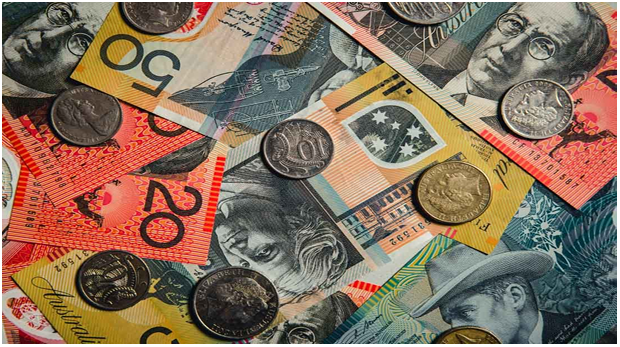
The RBA is expected to lower the cash rate amid escalating global trade
tensions. In the context of a world grappling with significant upheavals from U.S. tariff policies under President Donald Trump, the Reserve Bank of Australia (RBA) is facing immense pressure in managing its monetary policy, with many forecasts suggesting that a substantial interest rate cut could occur as early as next May.
External risks are escalating:
The United States' imposition of unprecedentedly high tariffs—125% on Chinese goods (as updated on April 10), 24% on Japanese goods, and 10% on imports from Australia—has sparked deep concerns about the ripple effects on global supply chains and economic growth. Although Australian goods face the lowest tariff rate, the indirect impact through major trading partners like China and Japan cannot be underestimated, as these two countries account for up to 50% of Australia’s total export volume.
Pressure on the domestic economy and the RBA:
In response to these global risks, markets and major financial institutions have swiftly adjusted their expectations for the RBA’s monetary policy:
● Deutsche Bank forecasts a 50-basis-point rate cut in May—double the usual
magnitude—to counter the shock from the global trade war.
● Commonwealth Bank and NAB also project a total of three rate cuts in 2025,
lowering the interest rate from 4.1% to approximately 3.35% by year-end.
Phil O’Donaghoe, Chief Economist at Deutsche Bank, argues: “The RBA needs to act more decisively. This isn’t just a response to inflation—it’s about safeguarding economic growth and market confidence amid global uncertainty.”
Lower interest rates: Opportunities and risks
A significant rate cut as forecasted would bring direct benefits to the public, particularly households with mortgages. For a $500,000 AUD home loan, a 50-basis-point reduction could lower monthly repayments by approximately $152 AUD.
However, experts also warn that an overly aggressive cut could send a negative signal to the market, fostering panic and undermining consumer confidence. Gerry Harvey, one of Australia’s prominent business figures, cautions that a sudden rate cut might be perceived as an “emergency measure,” fueling fears of a recession.
The response of the RBA and the government:
In its most recent meeting, the RBA maintained the interest rate at 4.1% and reiterated its “data-dependent” stance. However, with consumer sentiment plummeting and external risks becoming increasingly evident, the pressure on the RBA is intensifying. The federal government has also introduced a $1.05 billion AUD support package to assist businesses in redirecting exports and adapting to global trade shifts, underscoring the gravity of the situation.
The RBA is entering an exceptionally delicate phase of policy management. On one hand, itmust bolster economic growth in the face of external threats; on the other, it needs to avoid triggering panic or losing control of inflation. Forecasts of a substantial interest rate cut are well-founded—and next May could prove to be a pivotal moment for Australia’s monetary policy in 2025.
Reference Source: (Quang Tuấn Nguyễn 9/4/2025 - nguồn tin tổng hợp)
Breaking New - US imposing a 46% reciprocal tax
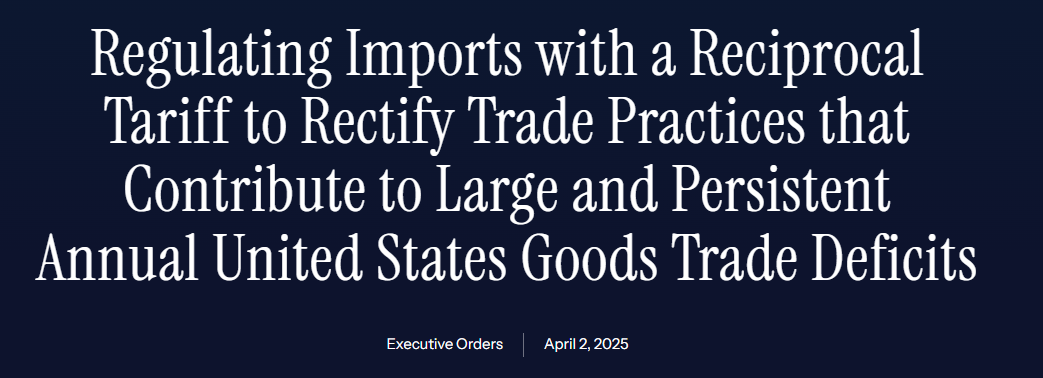
Breaking New - US imposing a 46% reciprocal tax
Businesses and the Vietnamese economy will be significantly impacted by the US's 46% reciprocal tariff on Vietnamese goods, particularly in important export industries. The major effects are as follows:
1. Effects on important export industries
Footwear and textiles: With over half of all export revenue, the US is the biggest market for the Vietnamese textile and apparel sector. Since the cost of goods has skyrocketed due to high taxes, Vietnamese commodities are no longer as competitive as those of nations like Bangladesh (37%) or Mexico (tax-free under the USMCA) that have not yet been subject to high taxes.
Furniture and wood: The American market is also a major source of income for the Vietnamese wood sector. Hundreds of thousands of industry workers will be impacted by the cancellation or drastic reduction of orders brought on by the tax rise.
Aquaculture: Vietnam's exports of shrimp, pangasius, and other aquatic products to the US will become less competitive. Customers in the US might start purchasing goods from other nations like Ecuador, India, or Indonesia.
Electronics and components: Samsung and foreign direct investment (FDI) companies that manufacture components in Vietnam may be impacted, requiring them to change their business plans or look for alternative export markets.
2. What challenges will Vietnamese businesses encounter?
Higher expenses and fewer profit margins: Many businesses will have to cut prices to keep clients when taxes are high, which will result in smaller profit margins or losses.
Reduced orders and market share risk: Because of lower taxes, competitors like Mexico, Indonesia, or African nations may overtake Vietnam in the US market.
Market pressure: Due to disparities in standards and requirements, businesses are compelled to look for new markets, whether they be domestic, in the Australia, EU, or in the Middle East.
Risk of job losses and poor growth: Millions of workers in export-related industries may be impacted if many companies are forced to reduce staff in order to save money.
3. Effect on the Economy of Vietnam
Export decline: After China, the US is currently Vietnam's second-largest export destination. The trade balance is impacted and GDP growth may stall when high taxes result in a decline in exports to the US.
Effect on Foreign Direct Investment: In order to avoid paying taxes, foreign businesses who invest in Vietnam to make goods for export to the US might think about moving to Indonesia or India.
Stock market and exchange rate: A rise in the USD/VND exchange rate could result from fewer FDI inflows, which would put pressure on inflation. Concerns among investors may cause the stock market to drop.
4. What actions should enterprises take in response?
Find strategies to export through a third party or bargain with US customers to share tax rates.
Increasing the domestic market or moving the market to Australia, Europe, or the Middle East.
Boosting product value and technology to preserve profit margins.
Using free trade agreements with countries like Australia and other regions to partially offset US market losses.
Source: Tron Group, AVBA, and White House announcement
https://www.whitehouse.gov/pre...
Signing MOU 6/1/25 with BIFA Vietnam
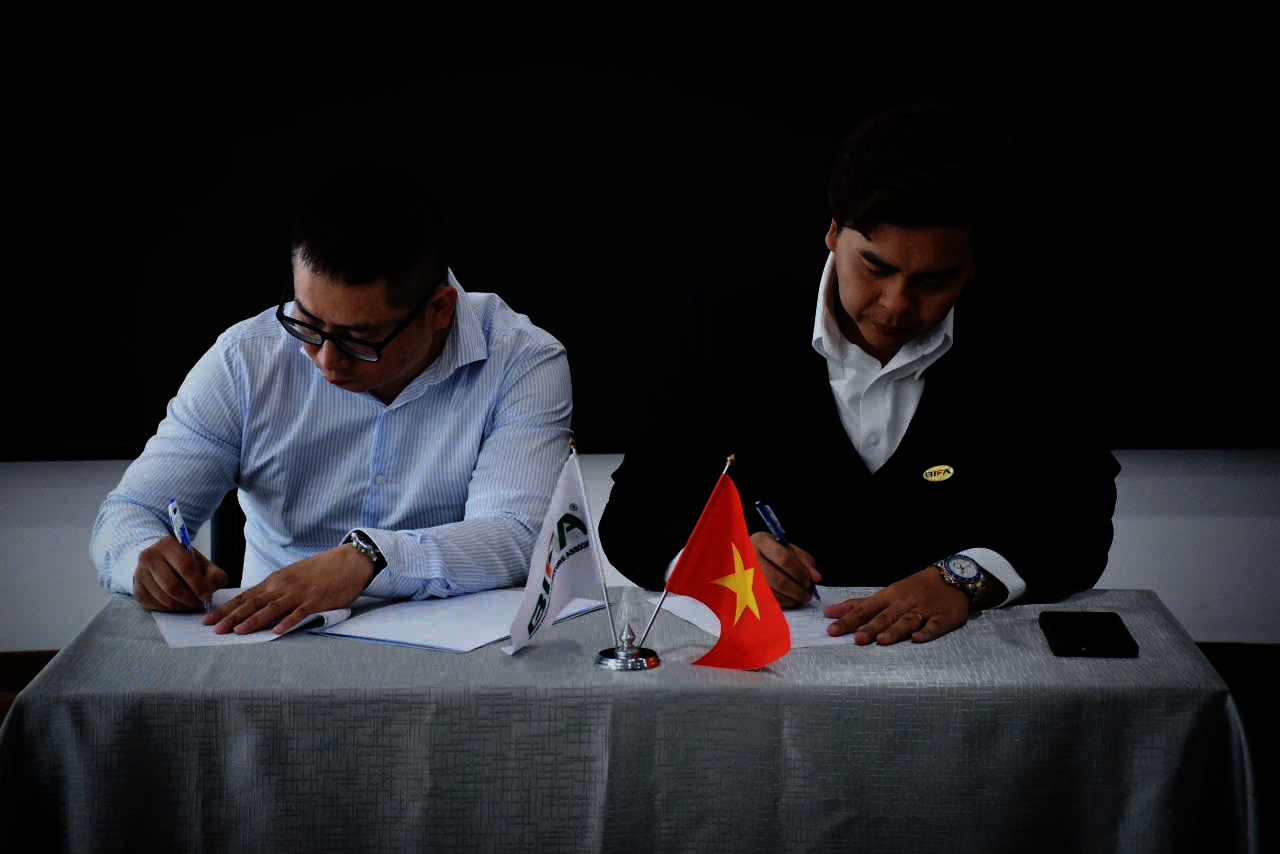
Signing MOU 6/1/25 with BIFA Vietnam and AVBA
Date: 06/01/2025
AVBA and BIFA Mutual Understanding Agreement signing 6/1/25 to explore opportunities for collaboration and support enterprises to export made in Vietnam interiors products into Australia.
The beginning of great friendship and collaboration!
LinkedIn: https://www.linkedin.com/posts...
Australia Vietnam Business Association (AVBA)
International Trade & Investment Promotion
AVBA VISIT VIETNAM BUSINESS AND NETWORKING
AVBA VIETNAM BUSINESS AND NETWORKING
AVBA Chairperson will visiting Vietnam
Date: 3/12/2024 - 7/01/2025
THIS NETWORKING IS FOR YOU
If you are looking for
1) Market Opportunities
2) Market Entry into Australia
3) Australia Products and Commodities
4) Finding join venture partners or business in Australia
If you are interested to book the meeting, please contact us as the information below:
Email: contact@avba.com.au
Thank you and have a great day!
Australian Vietnamese Business Association (AVBA)
International Trade & Investment Promotion
MANUFACTURING - VIETNAM BUSINESS TOUR 24th AUGUST 2024
MANUFACTURING - VIETNAM BUSINESS TOUR
Date: 24/08/2024 - 30/08/2024
THIS TOUR IS FOR YOU
If you are looking for
1. Suppliers
2. Outsourcing Partners
3. Finding join venture partners to setup factories or business in Vietnam
4. Exploring more opportunities to do business in Vietnam
BECAUSE YOU WILL
1. Meet Vietnamese largest manufacturing enterprises
2. Meet a large number of businesses and business associations in HCM city and Binh Duong province.
3. 1-1 Business matching upon registering request
4. Experience the 4-star hotel in HCM City and Buffet Dinner
If you are interested to book the tour, please contact us as the information below:
Email: contact@avba.com.au
Thank you and have a great day!
Australian Vietnamese Business Association (AVBA)
International Trade & Investment Promotion
PRODUCT SOURCING - AUSTRALIA BUSINESS TOUR 17th AUGUST 2024
PRODUCT SOURCING - AUSTRALIA BUSINESS TOUR 3rd AUGUST 2024
Date: 17/08/2024 - 23/08/2024
THIS TOUR IS FOR YOU
If you are looking for
1. Suppliers
2. Outsourcing Partners
3. Finding join venture partners to setup operations or business in Australia
4. Exploring more opportunities to do business in Australia
5. Winery Tours and Foods
BECAUSE YOU WILL
1. Meet Australian Vietnamese business enterprises
2. Meet a large number of businesses and business associations in Melbourne city.
3. 1-1 Business matching upon registering request
4. Experience the 4-star hotel in Melbourne and Dinner
If you are interested to book the tour, please contact us as the information below:
Email: contact@avba.com.au
Thank you and have a great day!
Australian Vietnamese Business Association (AVBA)
International Trade & Investment Promotion

